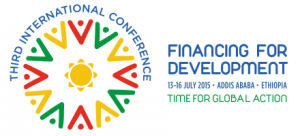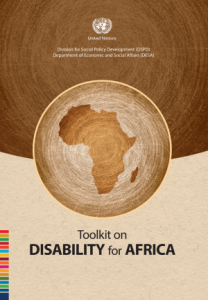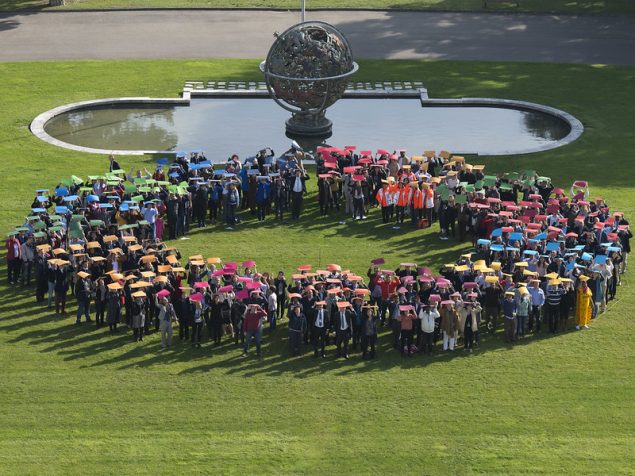 Persons with disabilities continue to face exclusion and discrimination in their communities, including in areas of education, employment and healthcare. Evidence indeed indicates that the promotion of inclusive development for persons with disabilities is beneficial for all in development. In order to ensure inclusive and necessary support services for persons with disabililites (including social protection aimed at the full inclusion of persons with disabilities), it is important for the development agenda to recognise and include persons with disabilities in development. This includes adequately financing for disability-relevant services and support.
Persons with disabilities continue to face exclusion and discrimination in their communities, including in areas of education, employment and healthcare. Evidence indeed indicates that the promotion of inclusive development for persons with disabilities is beneficial for all in development. In order to ensure inclusive and necessary support services for persons with disabililites (including social protection aimed at the full inclusion of persons with disabilities), it is important for the development agenda to recognise and include persons with disabilities in development. This includes adequately financing for disability-relevant services and support.
The Third International Conference on Financing for Development (FfD3) gathered high-level political representatives, including Heads of State and Government, as well as relevant institutional stakeholders, non-governmental organizations and business sector entities. The Conference resulted in an intergovernmentally negotiated and agreed outcome, which should constitute an important contribution to and support the implementation of the post-2015 development agenda. This document maps out the international development agenda for financing for development from 2015 to 2030.
The Outcome Document takes into account the need to support the United Nations development agenda beyond 2015 and the interrelationship of all sources of development finance. In his opening remarks during the Opening of the Third International Conference on Financing for Development on Monday, 13 July in Addis Ababa, the Secretary General reiterated that the Agenda presents “an ambitious financing framework, putting us on the right path to implement the post-2015 development agenda and the sustainable development goals”. An important component of this international accord is to ensure synergies between the FfD3 and the post-2015 negotiating tracks.
The Outcome Document refers to disability and persons with disabilities in the following areas:
- With regards to social protection, the paper calls for the provisions of social protection systems with a focus on, among other groups, persons with disabilities (para 12);
- With regards to employment and decent work, the paper encourages the full and equal participation of persons with disabilities, in the formal labour market (para 16);
- With regards to the education for children, the paper recognises the importance of delivering quality education to all children, including reaching children with disabilities and to upgrading educational facilities that are sensitive to children with disabilities (para 78);
- With regards to technology, the paper calls for the facilitation of accessible technologies for persons with disabilities (para 114);
- With regards to data and monitoring, the paper calls for an increase in high-quality and reliable data disaggregated by disability, among many other relevant characteristics (para 126).
As the Secretary-General remarked, the framework is universally inclusive, with an important emphasis of economic growth for developing countries, which aims to leave no-one behind. The challenge comes now in the implementation of these changes and. A stronger follow-up is necessary to ensure that these commitments are translated into action on the ground. The Agenda is hoped to create a catalyst for a new path for financing for development. This will facilitate and feed into the negotiation processes for securing an inclusive and mainstreamed post-2015 development agenda.
Links and resources:
- Third International Conference on Financing for Development (FfD3)
- Outcome Document: Addis Ababa Action Agenda (16 July 2015)
- Civil Society: CSO FfD Forum Declaration (12 July 2015)
- Business Sector: International Business Forum Summary (14 July 2015)
- History of the FfD Process




